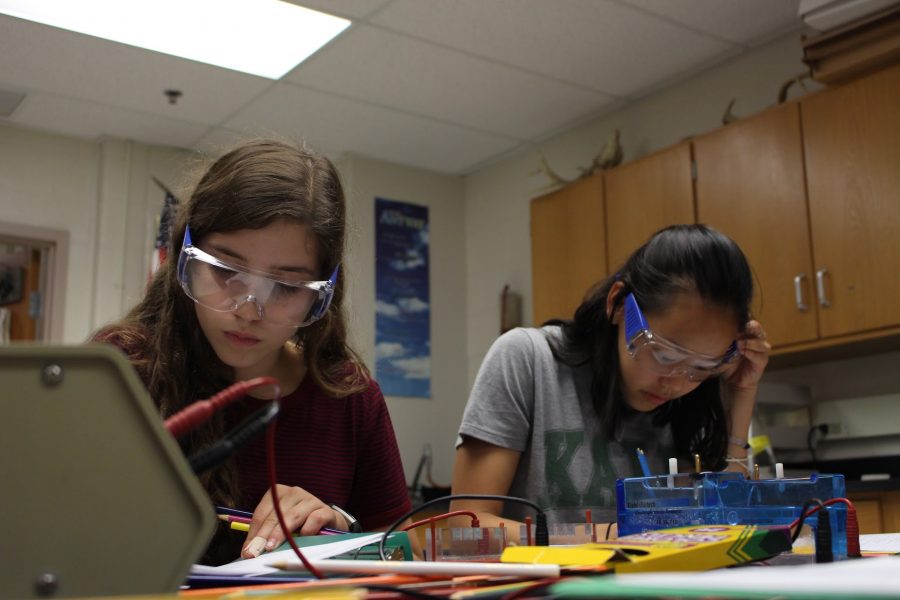MCPS Debates Cutting Some Science Courses
Photo Courtesy of Jeremy Chang
Junior Julie Cooper and senior Sarah Morgan work on gel electrophoresis lab in Molecular Genetics.
December 8, 2016
MCPS is debating whether or not to eliminate all science courses that are not part of the county curriculum. If the decision is approved, Molecular Genetics, Matter and Energy, Astronomy and Anatomy could be excluded from the MCPS Science, Technology, Engineering and Math (STEM) curriculum.
However, a more immediate change is that the curriculum for science courses is that they are being changed to align with the Maryland State Science Standards and the Common Core State Standards for Literacy and Mathematics.
“Students are going to have to study more science fields like chemistry and physics,” Biology teacher Sara Nemati said. “There may be some challenges in that some topics that are important for AP Biology are reduced or absent.”
According to Physics teacher Adam Fugal, the change was proposed due to the MCPS Board of Education (BOE) believing that many non-traditional science classes had become negligent in their testing efforts.
If this proposal passes, students will need to pass the new Maryland Integrated Science Assessment (MISA) beginning in 2018 in order to graduate. This assessment will contain many different sciences such as Biology, Chemistry and Physics.
“The new curriculum will reflect the interconnected nature of science as it is experienced in the real world,” MCPS Public Information Officer Derek Turner said.
Despite the revision, CHS science teachers have ideas to work with the program and mold it in order to benefit all students.
“I think most science teachers agree that there are some positive and negative aspects to the curriculum,” Nemati said. “I think we have more fun activities and group work, which most students enjoy. The Next Generation Science Standards have a lot of interesting ideas and it’s good that you have to work on developing skills rather than memorizing a textbook.”
Many students who have taken the non-core science courses such as Molecular Genetics and Anatomy believe that if this change passes it will ultimately hinder students learning.
“I think it’s really important to offer science classes other than the core classes because it can help students find something they are really passionate about and maybe even find something they want to pursue as a career,” senior Jackie Fasano said. “Taking that away is taking away an opportunity for students to apply themselves in a course that could be beneficial in the real world.”


